SWEDISH
SOUTH ASIAN STUDIES NETWORK
Newsletter 94:
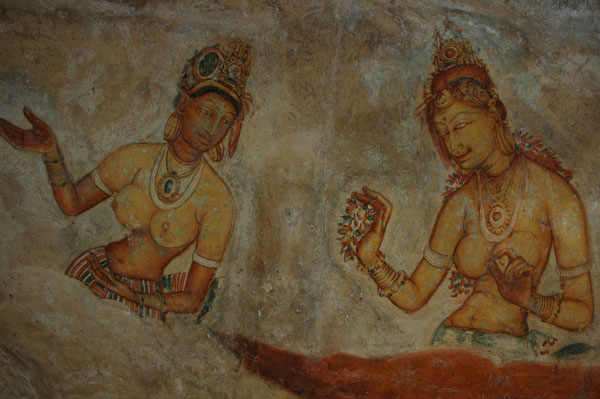 10 March 2009
10 March 2009
| Educational News |
| Politics and Business |
| South Asia related Culture |
| New and updated information |
• SASNET hosted quiz-winning students from IIT Mumbai
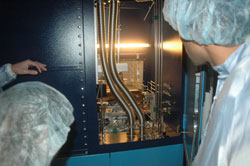 Two smart quizz winning Indian students from the Indian Institute of Technology (IIT) in Mumbai, Rahul Singh (from Jamshedpur) and Haripriya Mukundarajan (from Bangalore), visited SASNET and Lund University on Monday 23 February 2009. They were the winners of a Nobel prize quizz competition organised by the Embassy of Sweden in India in October 2008. The winners’ prize was an all-expenses paid, weeklong trip to Sweden where they would get an opportunity to visit Swedish universities and major technology companies in Lund, Gothenburg, Linköping, Sandviken and Stockholm. SASNET’s deputy director Lars Eklund organised their visit to Lund University, that included visiting the Nanoscience laboratory at the Dept. of Physics (photo to the right). More information.
Two smart quizz winning Indian students from the Indian Institute of Technology (IIT) in Mumbai, Rahul Singh (from Jamshedpur) and Haripriya Mukundarajan (from Bangalore), visited SASNET and Lund University on Monday 23 February 2009. They were the winners of a Nobel prize quizz competition organised by the Embassy of Sweden in India in October 2008. The winners’ prize was an all-expenses paid, weeklong trip to Sweden where they would get an opportunity to visit Swedish universities and major technology companies in Lund, Gothenburg, Linköping, Sandviken and Stockholm. SASNET’s deputy director Lars Eklund organised their visit to Lund University, that included visiting the Nanoscience laboratory at the Dept. of Physics (photo to the right). More information.
• Ravinder Kaur holds SASNET lecture on India’s Skewed sex Ratio
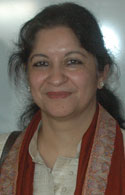 Professor Ravinder Kaur from the Dept. of Humanities and Social Sciences, Indian Institute of Technology (IIT) Delhi will hold a SASNET lecture at Lund University on Wednesday 11 March, 14.15–16. Prof. Kaur will talk about ”Strangers as Spouses: Marriage Implications of India’s Skewed sex Ratio”, focusing on the continuing gender imbalance and the recent steep declines in the child sex ratio in India. The presentation is based on extensive fieldwork consisting of interviews with cross-region couples in the state of Haryana with additional evidence from Uttar Pradesh. Some fieldwork-based evidence has also been obtained from the bride-sending states of West Bengal and Kerala. An interesting finding and a hopeful sign is the positive sex ratio of the offspring of such marriages. The lecture is organised in collaboration with Lund University’s Dept. of Economic History, and Centre for East and South-East Asian Studies (ACE). Venue: Conference room, Dept. of Economic History, Scheelevägen 15 B, 1st floor, Lund. More information.
Professor Ravinder Kaur from the Dept. of Humanities and Social Sciences, Indian Institute of Technology (IIT) Delhi will hold a SASNET lecture at Lund University on Wednesday 11 March, 14.15–16. Prof. Kaur will talk about ”Strangers as Spouses: Marriage Implications of India’s Skewed sex Ratio”, focusing on the continuing gender imbalance and the recent steep declines in the child sex ratio in India. The presentation is based on extensive fieldwork consisting of interviews with cross-region couples in the state of Haryana with additional evidence from Uttar Pradesh. Some fieldwork-based evidence has also been obtained from the bride-sending states of West Bengal and Kerala. An interesting finding and a hopeful sign is the positive sex ratio of the offspring of such marriages. The lecture is organised in collaboration with Lund University’s Dept. of Economic History, and Centre for East and South-East Asian Studies (ACE). Venue: Conference room, Dept. of Economic History, Scheelevägen 15 B, 1st floor, Lund. More information.
• SASNET/UPF lecture by Walter Andersen on Islamic militancy in India
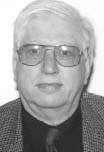 Dr. Walter Andersen, Associate Director of the South Asia Studies Program at Paul H. Nitze School of Advanced International Studies, Johns Hopkins University, Washington, D.C., USA will hold a joint SASNET/UPF (Lund University Association of Foreign Affairs) lecture in Lund on Monday 16 March 2009, at 19.30. Dr. Andersen, who has a PhD in Political Science from the University of Chicago, will lecture on ”Islamic militancy in India: A domestic issue with significant foreign policy implications.” He has recently retired as chief of the U.S. State Department's South Asia Division in the Office of Analysis for the Near East and South Asia. Venue for the seminar: Café Athen, Sandgatan 2, Lund. More information about Dr. Andersen.
Dr. Walter Andersen, Associate Director of the South Asia Studies Program at Paul H. Nitze School of Advanced International Studies, Johns Hopkins University, Washington, D.C., USA will hold a joint SASNET/UPF (Lund University Association of Foreign Affairs) lecture in Lund on Monday 16 March 2009, at 19.30. Dr. Andersen, who has a PhD in Political Science from the University of Chicago, will lecture on ”Islamic militancy in India: A domestic issue with significant foreign policy implications.” He has recently retired as chief of the U.S. State Department's South Asia Division in the Office of Analysis for the Near East and South Asia. Venue for the seminar: Café Athen, Sandgatan 2, Lund. More information about Dr. Andersen.
• Successful
workshop on Women and migration
in South
Asia
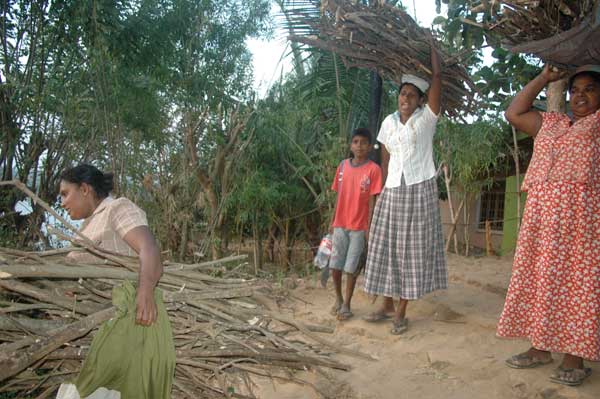 SASNET co-organised a successful
international workshop on ”Women and migration in South
Asia. Health and Social Consequences” that was held in
Colombo, Sri Lanka 9–11 February 2009. The workshop
was organised by SASNET in collaboration with the University
of Sri Jayewardenepura (SJP) in Colombo, and the Division
of International Maternal and Child Health (IMCH) at Uppsala
University. Around 30 researchers in the field were invited from all
over the South Asia region and from Swedish institutions. SASNET’s
director Anna Lindberg and deputy director Lars Eklund both
participated in the workshop.
The focus was on the consequences of migration for women, their
children and families in South Asia. The themes to be covered
were the effects of such migration with respect to social consequences, gender perspective, economy at family level, health including sexually transmitted diseases, and child development and psychology. See the full programme
for the workshop.
SASNET co-organised a successful
international workshop on ”Women and migration in South
Asia. Health and Social Consequences” that was held in
Colombo, Sri Lanka 9–11 February 2009. The workshop
was organised by SASNET in collaboration with the University
of Sri Jayewardenepura (SJP) in Colombo, and the Division
of International Maternal and Child Health (IMCH) at Uppsala
University. Around 30 researchers in the field were invited from all
over the South Asia region and from Swedish institutions. SASNET’s
director Anna Lindberg and deputy director Lars Eklund both
participated in the workshop.
The focus was on the consequences of migration for women, their
children and families in South Asia. The themes to be covered
were the effects of such migration with respect to social consequences, gender perspective, economy at family level, health including sexually transmitted diseases, and child development and psychology. See the full programme
for the workshop.
• SASNET’s South Asian Reference Group meeting
The
Colombo workshop was also the first effort to realise the concept of SASNET sub-networks,
put forward at the informal meeting by SASNET’s South Asian Reference Group
held in Delhi in November 2007 (more information),
later decided upon by SASNET’s board. One of the reference group members,
Dr. Kumudu Wijewardena from the University
of Sri Jayewardenepura (SJP) in Colombo chaired the Colombo workshop. A separate
meeting was held with SASNET’s South Asian Reference Group on Tuesday
10 February. Read a report from the meeting.
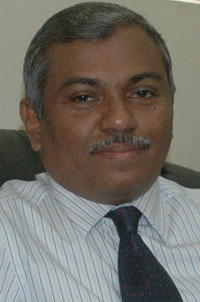 |
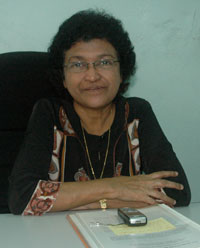 |
| Ahmed Ali Maniku and Naseema Mohamed. | |
• Lars Eklund reports from meetings in the Maldives
On his way to Sri Lanka, Lars Eklund also visited the Maldives
for two days, and met the Minister of State for Education, Dr.
Ahmed Ali Maniku, who declared that the new Maldivian government has made it a priority to finally make sure that the Maldives College of Higher
Education (MCHE) will be transformed
into a university proper during 2009; and Ms. Naseema Mohamed, Special Advisor to
the Dept. of History, National Centre for Linguistic and Historic
research in Male. Her institution has collaborated with several Scandinavian researchers over the years. Read Lars’ February
2009 report from Maldives.
• Anna reports from Sustainable Kerala Network meeting
Anna Lindberg on the other hand proceeded to Kerala, India after
participating in the Colombo workshop. She participated
in discussions about the development of the new so-called Sustainable
Kerala Network, a Swedish South Asian Network on Sustainable
Development, initiated by Prof. Baboo Nair, Lund University. The meeting was held at Kerala University in Thiruvananthapuram on 21 February 2009. Read Anna’s report from the meeting.
• Report from meeting with CREST and Kabani
Anna Lindberg also participated in a meeting with representatives of CREST, the Centre for Research and Education for Social Transformation in Kozhikode, and the NGO Kabani, based in Wayanad. The meeting was also held in Thiruvananthapuram on 21 February 2009. Read Anna’s report from the meeting.
• Time to update information in the Nordic researchers’ database
SASNET’s searchable database for Swedish and Nordic researchers involved in any kind of South Asia related research has been updated. Researchers already represented in the database are obliged to log in and do necessary changes. Log-in information has been sent by e-mail to them. Those Swedish and Nordic researchers not yet represented are kindly invited to join the register and enter information about current South Asia related research in the database. Please go to the entrance page www.sasnet.lu.se/updResearchers.php. As an old user click on the "update" button, as a new user click on the ”new user” button. Please note that your e-mail address will become your user name for future log-in.
To search for individual researchers in the database, please go to www.sasnet.lu.se/registerf.html.
Please note that the database/register currently is only open for Swedish and Nordic researchers.
• SASNET organises conference for young Nordic scholars
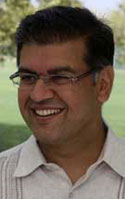 SASNET organises a Nordic conference on
South Asian Studies for young scholars in Falsterbo 17–19 August 2009. The aim of the conference is to gather master students, doctoral students, postdoctoral researchers and other junior scholars in the Nordic countries (including Denmark, Finland, Iceland, Norway and Sweden) who focus on South Asia in their research studies. The conference will provide an opportunity for young scholars to present their future and ongoing research projects, establish contacts with colleagues in the Nordic countries, and discuss the challenges and opportunities of career planning and conducting research in South Asian Studies.
SASNET organises a Nordic conference on
South Asian Studies for young scholars in Falsterbo 17–19 August 2009. The aim of the conference is to gather master students, doctoral students, postdoctoral researchers and other junior scholars in the Nordic countries (including Denmark, Finland, Iceland, Norway and Sweden) who focus on South Asia in their research studies. The conference will provide an opportunity for young scholars to present their future and ongoing research projects, establish contacts with colleagues in the Nordic countries, and discuss the challenges and opportunities of career planning and conducting research in South Asian Studies.
Four keynote speakers have been invited: Prof. Vinayak Chaturvedi (photo), University of California Irvine; Dr. Mirja Juntunen, Nordic Center in India, Uppsala University; Editor Teddy Primack, Academic Documents Associates, New York; and Prof. Pamela Price, Oslo University. The thematic sessions will be led by Prof. Knut A. Jacobsen, University of Bergen; Dr. Catarina Kinnvall, Lund University; Dr. Per Hilding, Stockholm University; and Prof. Devdatt Dubhashi, Chalmers University of Technology, Gothenburg. Venue: Falsterbo Kursgård, Ljungvägen 1, Höllviken (south of Malmö). More information on the conference web site.
• SASNET participated in Paris meeting on India Study Centres
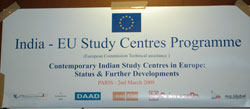 On Monday 2 March 2009, Lars Eklund and Stig Toft Madsen from SASNET participated in a A brain storming/awareness raising workshop on ”Contemporary India Study Centres in Europe: Status & Further Developments” that was held in Paris. The so-called India-EU Study Centres Programme (IESCP) was set up by the European Commission in 2008 as an integral part of the India-EU Joint Action Plan adopted in 2005. It aims to promote a better understanding of the EU in India and vice versa through academic and other forms of collaboration. Its chief objective is both to strengthen existing study centres and establish new ones focusing on EU studies in India as well as on contemporary Indian studies in Europe. The meeting was organised by Sciences Po/CERI (Center
for International Studies and Research) in Paris. More information below.
On Monday 2 March 2009, Lars Eklund and Stig Toft Madsen from SASNET participated in a A brain storming/awareness raising workshop on ”Contemporary India Study Centres in Europe: Status & Further Developments” that was held in Paris. The so-called India-EU Study Centres Programme (IESCP) was set up by the European Commission in 2008 as an integral part of the India-EU Joint Action Plan adopted in 2005. It aims to promote a better understanding of the EU in India and vice versa through academic and other forms of collaboration. Its chief objective is both to strengthen existing study centres and establish new ones focusing on EU studies in India as well as on contemporary Indian studies in Europe. The meeting was organised by Sciences Po/CERI (Center
for International Studies and Research) in Paris. More information below.
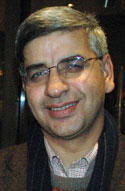 • Daya Kishan Thussu lectured on Indian TV News
• Daya Kishan Thussu lectured on Indian TV News
Dr. Daya Kishan Thussu from the University of Westminster, UK, was invited by SASNET to lecture at a Focus Asia conference on ”Media Cultures and Politics in Asia and Beyond” that was held at Lund University 26–27 February 2009. Focus Asia is a yearly event organised by the Centre for East and South-East Asian Studies (ACE) at Lund University, and this 10th Focus Asia event brings together leading media scholars who discussed media in Asia and beyond. Several of the lectures at the Focus Asia conference addressed the relationship between media, democracy and the public sphere in different national and regional contexts. Dr. Thussu talked about ”Infotainment – Indian Style: Changing Contours of TV News in the
World’s Largest Democracy” on Thursday 26 February, 16.00–17.30. Read the full programme for the Focus Asia February 2009.
• More information about SASNET and its
activities
See SASNET’s page, http://www.sasnet.lu.se/sasnet.html
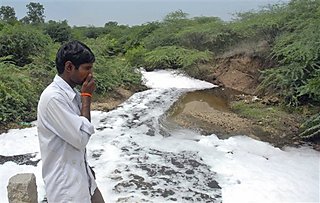 |
| A man covers his nose to keep out the stench from the polluted Iska Vagu stream. Photo: Mahesh Kumar/AP |
• Swedish environmental research highlighted internationally
Research results on polluting pharmaceutical companies in India by Associate Professor Joakim Larsson and his research group from the Endocrinology Division, Dept. of Physiology at Sahlgrenska Academy, Gothenburg University, have made international headlines. For several years, Dr. Larsson and his team have studied the environmment around the Patancheru Enviro-Tech Ltd plant (PETL) in Hyderabad , India. In January 2009 they presented shocking results in a scientific report that raise concerns for the health of wildlife and ecosystems in the region, as well as underscoring little-studied potential effects on human health. The report was highlighted by the Associated Press (AP) news agency. Its medical reporter Margie Mason wrote an informed article from Patancheru, titled ”World's Highest Drug Levels Entering India Stream”. Read the full article.
The effect of the AP article was phenomenal. The article soon appeared in many leading newspapers all over the world. According to Google it was soon republished on more than 2 million web pages. It has also been presented in the Nature Magazine.
In India, the Times of India took up the thread, and wrote several articles on the issue, front page articles that gained wide attention in the country. The paper revealed that after the publication of the report, the office of prime minister Manmohan Singh had asked the local pollution board to start collecting data on pharmaceuticals in Patancheru's waters immediately. More information on Dr. Larsson and the Patancheru research.
The Gothenburg University research on the environmental problems at Patancheru will continue. In November 2008, the project now titled ”Microbial Diversity and Development of Antibiotic Resistance Associated with Industrial Wastewater Treatment” was given SEK 750 000 as a three-years grant for the period 2009–11 from the Swedish Research Links programme (funded by Sida and the Swedish Research Council). The main applicant was Prof. Edward Moore, Department of Clinical Bacteriology,
Sahlgrenska University Hospital, Gothenburg University, but Dr. Joakim Larsson is also behind the successful application. More information on the Swedish
Research Links project.
• Four EMECW programmes focusing on South Asia now running
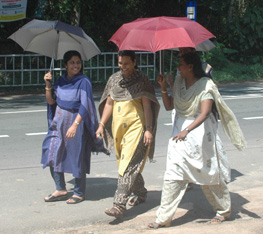 The deadline for applying for Erasmus Mundus External Cooperation Window programme proposals (EACEA/35/08) regarding mobility activities starting in the academic year 2009–2010 is Friday 13 March 2009. This year, two geographical window lots are dedicated to South Asia, Lot 13 entirely for collaboration with India, and Lot 11 that should include collaboration with Afghanistan, Bhutan, Nepal, Pakistan and Bangladesh. For each of the South Asia lots, four proposals will be selected. It means that each selected programme probably will have a budget roughly around EUR 5 million per year. In the event of submitted proposals presenting the same high quality standards
requested, priority will be given to the partnerships selected in 2008 (see the list of the partnerships projects selected in 2007 and 2008).
The deadline for applying for Erasmus Mundus External Cooperation Window programme proposals (EACEA/35/08) regarding mobility activities starting in the academic year 2009–2010 is Friday 13 March 2009. This year, two geographical window lots are dedicated to South Asia, Lot 13 entirely for collaboration with India, and Lot 11 that should include collaboration with Afghanistan, Bhutan, Nepal, Pakistan and Bangladesh. For each of the South Asia lots, four proposals will be selected. It means that each selected programme probably will have a budget roughly around EUR 5 million per year. In the event of submitted proposals presenting the same high quality standards
requested, priority will be given to the partnerships selected in 2008 (see the list of the partnerships projects selected in 2007 and 2008).
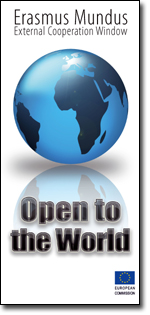 Currently, four South Asia related Erasmus Mundus External Cooperation Window programmes are functional.
Currently, four South Asia related Erasmus Mundus External Cooperation Window programmes are functional.
–
Lund University, Sweden was selected in June 2008 to coordinate the India Lot that was called No. 15 in the 2008 announcement. The EMECW lot 15 programme, run by a consortium of 12 universities in Europe and 8 universities in India, has a mobility flow of 400 fully funded students, researchers and academic staff per year (75 % from India to Europe and 25 % from Europe to India) from 2009. More information on the Lot 15 project web site.
– Mälardalen University in Västerås, Sweden was also selected in June 2008 to coordinate current Lot No. 12. The university consortium behind this comprises of 16 universities, nine in Europe and seven in South Asia – out of which 4 are in India, and 1 each in Nepal, Pakistan and Sri Lanka. The programme has been given the name EURECA ( European Research and Collaboration Project with Asia), and it will have a mobility flow of 320 fully funded students, researchers and academic staff per year. More information about the EURECA web page.
– University of Bradford, UK was selected in December 2008 to coordinate what is known as the Asia Regional programme 1. The consortium consists of 5 universities in Europe and 6 universities in Asia – including Bangladesh, Bhutan, Nepal and Pakistan. The programme has a mobility flow of 344 fully funded students, researchers and academic staff per year.
The consortium/programme is built upon a previous European Commission funded collaborative project named eLINK. More information on the eLINK web page.
– University of Nice Sophia-Antipolis, France was also selected in December 2008 to coordinate what is known as the Asia Regional programme 2. The consortium consists of 9 universities in Europe and 8 universities in Asia – including Bangladesh, India and Pakistan. The consortium is named EMMA (Erasmus Mundus Mobility with Asia). More information on the EMMA programme’s web page.
On 16 December 2008, the European Parliament decided upon the so-called Erasmus Mundus 2009–2013 Action Programme. It continues and extends the scope of the activities already launched during the first phase (2004–2008) and includes the Erasmus Mundus External Cooperation Window scheme, which was launched in 2006 as a complement to the original programme.
Among the main new features included in this second phase are: – Support to joint doctoral programmes and award of three years fellowships for doctoral candidates; – Award of full scholarships/fellowships to European students and doctoral candidates, in addition to those already awarded to Third Country nationals‚ – Full participation of Third Country HEIs in consortia implementing joint programmes at masters or doctoral level; and – Inclusion of the Erasmus Mundus External Cooperation Window scheme as Action 2 of the new programme.
Read more about the Erasmus Mundus External Cooperation Window programme and the selected university consortia.
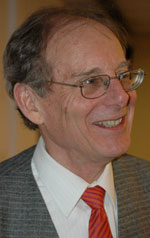 |
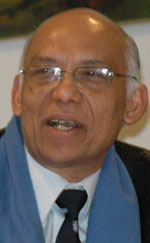 |
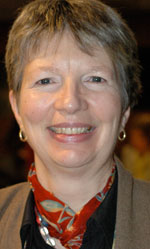 |
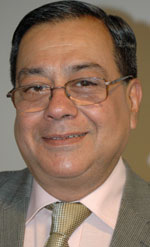 |
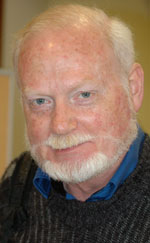 |
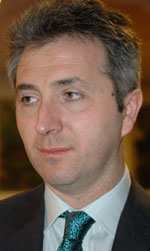 |
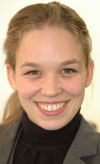 |
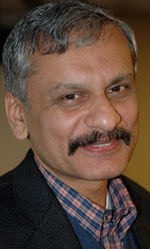 |
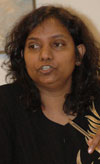 |
| Roger Jeffery, University of Edinburgh, Scotland | Subrata Mitra, South Asia Institute, University of Heidelberg, Germany | Isabelle Milbert, Graduate Inst. of International & Development Studies, Geneva, Switzerland | Balveer Arora, Centre for Political Studies, JNU, New Delhi, India | James Manor, Institute of Commonwealth Studies, University of London, UK | Lawrence Saez, School of Oriental and African Studies, University of London, UK | Julia Schwarzenber-ger, Deutscher Akademischer Austausch Dienst (DAAD), Berlin | Errol d’Souza, Indian Institute of Management (IIM), Ahmedabad, India | Ruth Kattumuri, Asia Research Centre, London School of Economics, UK |
| Some of the participants to the Paris workshop on Contemporary India Study Centres in Europe: Status & Further Developments. | ||||||||
• European Commission plans for more Indian Study Centres in Europe
A brain storming/awareness raising workshop on ”Contemporary India Study Centres in Europe: Status & Further Developments” was held in Paris on Monday 2 March 2009. The so-called India-EU Study Centres Programme (IESCP) was set up by the European Commission in 2008 as an integral part of the India-EU Joint Action Plan adopted in 2005. It aims to promote a better understanding of the EU in India and vice versa through academic and other forms of collaboration. Its chief objective is both to strengthen existing study centres and establish new ones focusing on EU studies in India as well as on contemporary Indian studies in Europe.
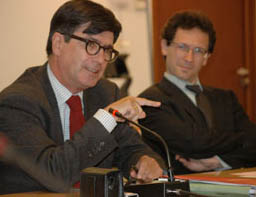 |
| Mr. Ulrich Podewils presented the IESCP programme. Prof. Christophe Jaffrelot hosted the meeting. |
The Paris meeting, organised by Sciences Po/CERI (Center
for International Studies and Research), was intended to study the current situation of Indian/South Asian studies prevailing in different countries of Europe. Representatives of South Asian studies institutions and networks in UK, Germany, France, Belgium, Netherlands, Switzerland, Poland, Spain, Denmark and Sweden were therefore invited to discuss the issue in Paris. The Delhi based team leader of the India-EU Study Centres Programme, Mr. Ulrich Podewils presented the programme, along with Prof. Balveer Arora, former Rector, Jawaharlal Nehru University (JNU) in New Delhi. The meeting was presided over by Prof. Christophe Jaffrelot, Sciences Po/CERI.
SASNET was represented at the Paris meeting by both Lars Eklund and Stig Toft Madsen.
During the meeting, it was announced that another five study centres, either on EU in India or India in Europe, will be selected by the project, in addition to 10 already existing study centres. Prospective European and Indian institutions are welcome to apply for this selection. A Call for Proposals will soon be announced at the project web site. The selection process will be completed during 2009 and support (EUR 300 000 per year) will be provided from 2010. More information at the IESCP web page.
• Blekinge Institute of Technology (BTH) delegation visited India
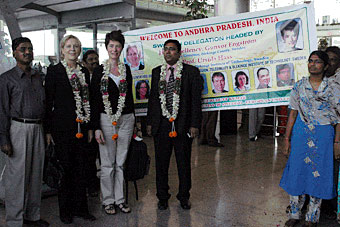 In February 2009, a big delegation from Blekinge Institute of Technology (BTH), led by the Vice Chancellor Ursula Hass, went on an official week-long tour to India. BTH is
one of the youngest and smallest universities in Sweden with just
about 3 500 full time students and a staff of about 500.
BTH is spread over 3 campuses at Karlskrona, Ronneby and Karlshamn
and focuses on applied IT technology. It attracts a great many
foreign students in its various programmes and has developed exchange programmes with several universities in India, especially in Hyderabad and Chennai. (Read a SASNET report from a visit to BTH in 2007). The aim of the BTH tour to India was to strengthen the existing ties regarding research collaboration and student exchange. A visit to the Indian Institute of Management in Chennai was also included in the journey, where discussions were held on new joint research projects. BTH’s efforts are part of a larger scheme run by the regional administration in the South-East Swedish region of Blekinge, to develop links not only regarding education and research but also in business between Blekinge and the South-East region of India, the states of Andhra Pradesh and Tamil Nadu. The Governor (landshövding) of Blekinge therefore accompanied the university delegation to India. More information, and a link to the delegation’s India blog page.
In February 2009, a big delegation from Blekinge Institute of Technology (BTH), led by the Vice Chancellor Ursula Hass, went on an official week-long tour to India. BTH is
one of the youngest and smallest universities in Sweden with just
about 3 500 full time students and a staff of about 500.
BTH is spread over 3 campuses at Karlskrona, Ronneby and Karlshamn
and focuses on applied IT technology. It attracts a great many
foreign students in its various programmes and has developed exchange programmes with several universities in India, especially in Hyderabad and Chennai. (Read a SASNET report from a visit to BTH in 2007). The aim of the BTH tour to India was to strengthen the existing ties regarding research collaboration and student exchange. A visit to the Indian Institute of Management in Chennai was also included in the journey, where discussions were held on new joint research projects. BTH’s efforts are part of a larger scheme run by the regional administration in the South-East Swedish region of Blekinge, to develop links not only regarding education and research but also in business between Blekinge and the South-East region of India, the states of Andhra Pradesh and Tamil Nadu. The Governor (landshövding) of Blekinge therefore accompanied the university delegation to India. More information, and a link to the delegation’s India blog page.
• University of Heidelberg offers free access to South Asia related academic journals
 Savifa, the virtual library of the South Asia Institute, University of Heidelberg, Germany offers an excellent service in regularly providing the contents of each new publication of a large number of selected South Asia related academic journals. The so-called E-Toc-Alert service is free of charge. With the publication of a new issue, you will receive an e-mail containing table of contents as well as information on access and library holdings within Germany. The South Asia Institute offers this service for 83 journals with a focus on South Asian studies. If you are interested in this E-Toc-Alert service, then please use the subscription form on Savifa’s web page.
Savifa, the virtual library of the South Asia Institute, University of Heidelberg, Germany offers an excellent service in regularly providing the contents of each new publication of a large number of selected South Asia related academic journals. The so-called E-Toc-Alert service is free of charge. With the publication of a new issue, you will receive an e-mail containing table of contents as well as information on access and library holdings within Germany. The South Asia Institute offers this service for 83 journals with a focus on South Asian studies. If you are interested in this E-Toc-Alert service, then please use the subscription form on Savifa’s web page.
• Nordic Network for the Study of Environmental Challenges in South Asia to be established
A Nordic Network for the Study of Environmental Challenges in South Asia will soon be established. Two conferences held recently, the SASNET funded conference on ”Nature, Knowledge and Power” held in Uppsala in August 2008, and another workshop on ”Politics of Adaptation to Environmental Challenges in the 21st Century South Asia” that was held in Oslo in November 2008, have propelled into ideas of institutionalising a Nordic researchers’ network. For the organizers of both events, one goal was to establish such a network dealing with environmental challenges in South Asia. Planning for the network is still in the early stages. If you would like to join such a network, please send an e-mail to Prof. Pamela Price, University of Oslo, and indicate the nature of your interest(s).
• Time to apply for grants from Swedish
International Development Cooperation Agency
![]() Grants
to support Swedish development research are provided by the Swedish
International Development Cooperation Agency, Sida,
through its Developing
Country Research Council (u-landsforskningsrådet).
These so-called uforsk grants belong to the most
important ways of financing Swedish research projects related to developing
countries, including South Asia. The aim is to establish and maintain
a knowledge base of relevance to aid and development issues, plus
capacity for developing country research in Sweden. Deadline for applications for the period 2010–2012 is Thursday 2 April 2009 (except in the case of applications for networks on development issues, where the applications round does not open until 3 April, and the deadline is set to be 24 August 2009). More information.
Grants
to support Swedish development research are provided by the Swedish
International Development Cooperation Agency, Sida,
through its Developing
Country Research Council (u-landsforskningsrådet).
These so-called uforsk grants belong to the most
important ways of financing Swedish research projects related to developing
countries, including South Asia. The aim is to establish and maintain
a knowledge base of relevance to aid and development issues, plus
capacity for developing country research in Sweden. Deadline for applications for the period 2010–2012 is Thursday 2 April 2009 (except in the case of applications for networks on development issues, where the applications round does not open until 3 April, and the deadline is set to be 24 August 2009). More information.
Researchers working at universities/colleges or other
research institutions in Sweden may apply for grants. Swedish citizens
working at the Nordic Institute for Asian Studies (NIAS) in Copenhagen
may also apply.
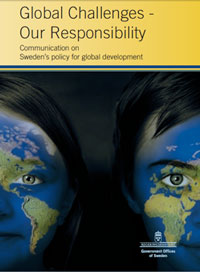 Among the new stipulations set up by Sida for the period 2010–12 are requirements that the proposed research projects should have a clear relevance for Sweden’s policy for global development (PGD, decided upon by the Swedish government in 2008, more information); and have a land focus in accordance with the Swedish government’s priorities – which in the South Asia case means primarily Bangladesh and Afghanistan and in a selective mode also India.
Among the new stipulations set up by Sida for the period 2010–12 are requirements that the proposed research projects should have a clear relevance for Sweden’s policy for global development (PGD, decided upon by the Swedish government in 2008, more information); and have a land focus in accordance with the Swedish government’s priorities – which in the South Asia case means primarily Bangladesh and Afghanistan and in a selective mode also India.
In accordance with the PGD, Sida has been instructed to make priority to projects dealing with poverty reduction. Focus has been put on three preferential thematic areas, namely: – Democracy and human rights; – Gender equality and women’s role in development; and – Environment and climate change.
As an additional preferential focus area in the 2009 applications, the Swedish government has decided to contribute to set up a long-term action plan for the global fight against contagious diseases, and support research within this field with specific funds.
Further, Sida wants to encourage increased collaboration between researchers at different Swedish universities, opening up the possibility for groups of researchers to apply for grants up to SEK 3 M over a three-years period. The maximum amount for planning grants has been increased to SEK 100 000.
Finally, the term ”research networks” that groups of researchers can apply for has been changed into ”networks on development issues”, where the focus is more oriented towards meetings and an exchange of knowledge between researchers and practitioners/decision makers. Still, the main applicant should be connected to a Swedish university. The maximum annual amount to apply for regarding these networks will be SEK 500 000.
More information on the changes in the Uforsk programme (as a pdf-file, in Swedish only).
• Deadlines in April for grants from Swedish Research Council
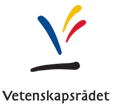 The Swedish
Research Council (Vetenskapsrådet) provides support for basic research
of the highest scientific quality in all fields of science.
Several South Asia related projects have been given grants in recent
years. Applications for grants for 2010 and subsequent years should have been
given no later than: 2 April 2009 for projects within Humanities and
Social sciences; 8 April 2009 for projects within Medicine; 15 April 2009 for projects within Natural sciences and Technology; and 22 April
2009 for projects within Educational science, and for Research infrastructures.
Decisions will be taken in November 2009. Full
information on grants currently announced, requirements, instructions etc.
The Swedish
Research Council (Vetenskapsrådet) provides support for basic research
of the highest scientific quality in all fields of science.
Several South Asia related projects have been given grants in recent
years. Applications for grants for 2010 and subsequent years should have been
given no later than: 2 April 2009 for projects within Humanities and
Social sciences; 8 April 2009 for projects within Medicine; 15 April 2009 for projects within Natural sciences and Technology; and 22 April
2009 for projects within Educational science, and for Research infrastructures.
Decisions will be taken in November 2009. Full
information on grants currently announced, requirements, instructions etc.
• Swedish Research Links Programme calls for 2009 proposals
The Swedish Research Links Programme now calls for the 2009 proposals, both in the form of
International Collaborative Research Grants (for three years), and for
one-year International Planning Grants. The Swedish Research Links Programme seeks to foster research ties between researchers in Sweden, on the one hand, and researchers in Asia, the Middle East and North Africa region (MENA), South Africa, Botswana and Namibia on the other. The key condition for the Swedish Research Links Programme is that researchers from the countries involved must submit joint applications on projects of mutual interest. The programme is funded by the Swedish International Development Cooperation Agency (Sida) and administered by the Swedish Research Council. Deadline for applications is Wednesday 6 May 2009. More information.
• Mattias Larsen defends PhD thesis on sex selective abortions in India
Mattias Larsen, Dept. of Peace and Development Research, School of Global Studies,
Gothenburg University will defend his doctoral dissertation on ”Vulnerable Daughters in Times of Change: Emerging Contexts of Discrimination in Himachal Pradesh, India” on Friday 13 March 2009, 13.15. The dissertation deals with the widespread problem in India of using sex selective abortions to discriminate against daughters. Girls are aborted on a massive scale simply because they are girls. A point of departure is the fact that the problem has become prevalent at a time of considerable social and economic change. Faculty opponent is Prof. Ravinder Kaur from the Dept. of Humanities and Social Sciences, Indian Institute of Technology (IIT) in Delhi. Venue: Annedalsseminariet, room 220, Campus Linné, Seminariegatan 1, Gothenburg. Read the abstract.
• Anna Laine defends thesis on the South Indian Kolam Ritual
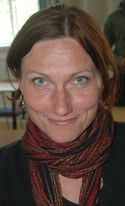 Anna
Laine, Division of Social Anthropology, School of Global Studies, Gothenburg
University will defend her doctoral thesis on the
Kolam Ritual: Visual Representation of Female Agency in Tamil Nadu,
India titled ”In Conversation with the Kolam Practice. Auspiciousness and Artistic Experiences among Women in Tamilnadu, South India” on
Saturday 28 March 2009, 10.15. The study investigates the kolam both as a performative process, and as a material result, and the ethnographic material is treated from anthropological perspectives on art and gender. Faculty opponent will be Dr Amanda Ravetz from the Manchester Institute for Research and Innovation in Art and Design (MIRIAD) at Manchester Metropolitan University, UK. Venue: School of Global Studies, room 514 (auditorium), Annedalseminariet, Seminariegatan 1 A, Gothenburg. More information, with a link to the full-text thesis.
Anna
Laine, Division of Social Anthropology, School of Global Studies, Gothenburg
University will defend her doctoral thesis on the
Kolam Ritual: Visual Representation of Female Agency in Tamil Nadu,
India titled ”In Conversation with the Kolam Practice. Auspiciousness and Artistic Experiences among Women in Tamilnadu, South India” on
Saturday 28 March 2009, 10.15. The study investigates the kolam both as a performative process, and as a material result, and the ethnographic material is treated from anthropological perspectives on art and gender. Faculty opponent will be Dr Amanda Ravetz from the Manchester Institute for Research and Innovation in Art and Design (MIRIAD) at Manchester Metropolitan University, UK. Venue: School of Global Studies, room 514 (auditorium), Annedalseminariet, Seminariegatan 1 A, Gothenburg. More information, with a link to the full-text thesis.
• Center for Buddhist Studies offers fellowships
The Center for Buddhist Studies at the University of Hamburg, founded in 2007, now offers fellowships for up to a maximum of twenty-four months to support MA and doctoral students doing research in Buddhist studies and other fields related to Buddhism. Candidates of all faculties are welcome to apply. Eligible candidates must have completed a university degree from a German/EU or overseas institution recognized by the University of Hamburg. BA students who have completed their degree but do not yet hold a certificate can be accepted, if an indication of the expected class/grade is provided. The fellowship cannot be held simultaneously with any other major fellowship or studentship. The application deadline for Fall 2009 is 15 May 2009. More information.
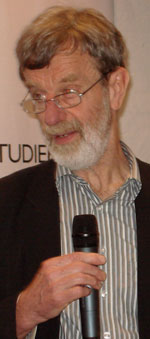 • Legendary Danish development researcher felicitated
• Legendary Danish development researcher felicitated
It was a virtual throwback to the 1960s when friends, family and colleagues came to felicitate the Danish senior development researcher Steen Folke on Thursday March 5, 2009 at the Danish Institute of International Studies in Copenhagen on the eve of his retirement. Steen Folke sailed for India in 1959 with his parents, who worked on one of the first Indo-Danish projects in Karnataka. At the reception, Steen mentioned that he later made a critical evaluation of this project. It was perhaps the first evaluation to be made by the Danish International Development Assistance (Danida). A human geographer by profession, Steen subsequently evaluated a range of projects in India, Bangladesh and elsewhere. In an edited volume from 2006 titled ”Den rige mus og den fattige elefant” he has collected essays illustrating the entire history of Indo-Danish development collaboration (more information).
His latest evaluation concerns Danida support to the Private Sector in India. The evaluation concludes that the programme did help boost the Indian private sector, while also – as intended? – helping to boost the Danish private sector.
Steen Folke was a member of the Danish parliament representing the Left Socialist party from 1975 to 1984. He remains active in Action Aid and Mellemfolkeligt Samvirke as well as elsewhere. More information on Steen Folke.
• Time to propose panels for the 2010 ECMSAS conference
 The University of Bonn will host the next European Conference on Modern South Asian Studies (ECMSAS) to be held in 2010. This information was posted in the latest European Association of South Asian Studies (EASAS) Newsletter. The projected dates are 26-29 July 2010.
Detailed planning is still taking place, however, and these dates should not yet be regarded as final. A steering committee has been formed. The contact persons are Dr Heinz Werner Wessler and Anuradha Bhalla. If you are interested to convene your own panel, please send your panel suggestion together with a short description of 10-15 lines each and a tentative list of participants as a Word file to the following email-address: indologisches.seminar@uni-bonn.de.
The file should be structured like this: – Panel name (tentative); –
Panel description; –
Your name, postal and email addres; –
Professional affiliation; –
List of participants (tentative); –
Possible suggestion for travel grant (for participants from South Asia only); –
Please mention under ”Regarding” (as subject line): ECMSAS panel suggestion. Send your panel suggestion not later than 29 April. A website on the details of the conference will then be set up at www.uni-bonn.de, after the decisions on the panels have been taken, most probably towards the end of May 2009. More information available on the EASAS web site.
The University of Bonn will host the next European Conference on Modern South Asian Studies (ECMSAS) to be held in 2010. This information was posted in the latest European Association of South Asian Studies (EASAS) Newsletter. The projected dates are 26-29 July 2010.
Detailed planning is still taking place, however, and these dates should not yet be regarded as final. A steering committee has been formed. The contact persons are Dr Heinz Werner Wessler and Anuradha Bhalla. If you are interested to convene your own panel, please send your panel suggestion together with a short description of 10-15 lines each and a tentative list of participants as a Word file to the following email-address: indologisches.seminar@uni-bonn.de.
The file should be structured like this: – Panel name (tentative); –
Panel description; –
Your name, postal and email addres; –
Professional affiliation; –
List of participants (tentative); –
Possible suggestion for travel grant (for participants from South Asia only); –
Please mention under ”Regarding” (as subject line): ECMSAS panel suggestion. Send your panel suggestion not later than 29 April. A website on the details of the conference will then be set up at www.uni-bonn.de, after the decisions on the panels have been taken, most probably towards the end of May 2009. More information available on the EASAS web site.
• Presentations from the Peacebuilding in Afghanistan now available on the Net
All the conference presentations from the International conference on ”Peacebuilding in Afghanistan: Local, regional and global perspectives” that was held in Stockholm 6–7 November 2008 are now available in full-text on the Internet. The conference focused on what the peacebuilding efforts look like in the country? What roles do the Afghan authorities, the International Community, the UN and the Nato-led ISAF forces play? Do they contribute to peace or armed conflict? Are there local initiatives at grassroots level promoting peace and how does the civilian population contribute to the reconstruction of the country? Why does Afghanistan receive so little funding for reconstruction compared to other areas of armed conflict? Have the complex developments in Afghanistan become something that the West would rather not have to deal with? What actions are needed in order for Afghanistan to become a country of peace and stability? Go to the presentations now available on the Internet.
The conference was organised by the Swedish Committee for Afghanistan (SCA), in cooperation with ENNA (European Network of NGOs in Afghanistan). Invited speakers included prominent persons such as Sima Samar, Chairperson of the Afghan Independent Human Rights Commission; Kristian Berg Harpviken,
senior researcher at the International Peace Research Institute (PRIO) in Oslo; and the eminent Pakistani writer/journalist Ahmed Rashid. SASNET’s deputy director Lars Eklund participated in the conference. Read his report.
• More information about South Asia related
research at Swedish and Nordic universities
See SASNET’s page, http://www.sasnet.lu.se/research.html
• Swedish Embassy in India announces two trainee positions
 The Swedish Embassy in India announces two trainee positions (praktiktjänstgöring) in the Fall 2009. Twice a year, the Embassy offers two students from Swedish universities or university colleges the chance to do trainee work for a period of 20 weeks each. Swedish students at foreign universities may also apply, but the applicant must be a Swedish citizen. The trainee period should either be part of a regular academic study programme, or at least be relevant for the student’s education. The work is unpaid, and the candidates must find their own accommodation in New Delhi. Applications regarding the Fall semester 2009 should be sent to the Swedish Embassy not later than Friday 20 March 2009. More information.
The Swedish Embassy in India announces two trainee positions (praktiktjänstgöring) in the Fall 2009. Twice a year, the Embassy offers two students from Swedish universities or university colleges the chance to do trainee work for a period of 20 weeks each. Swedish students at foreign universities may also apply, but the applicant must be a Swedish citizen. The trainee period should either be part of a regular academic study programme, or at least be relevant for the student’s education. The work is unpaid, and the candidates must find their own accommodation in New Delhi. Applications regarding the Fall semester 2009 should be sent to the Swedish Embassy not later than Friday 20 March 2009. More information.
• India set to establish 735 new universities in four years time
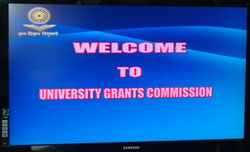 In August 2008, a committee set up by the Indian University Grants Commission (UGC) recommended an additional establishment of 735
universities in India during the ongoing 11th five-year Plan ending 2012. The committee, comprising Professor Duraisami of Madras University and Professor
Sudhansu Bhusan of National University of Education Planning and Administration,
said that more universities will be needed to increase the gross enrolment rate.
The committee was set up to suggest reforms on the affiliation system
and monitoring of education in the 11th plan, and followed upon recommendations made by the Indian National Knowledge
Commission in 2006 which stated that India would need at least 1,500 universities in order to
turn the country into being a knowledge society (more information about the 2006 commission report).
In August 2008 there were a total number of 388 universities in India.
In August 2008, a committee set up by the Indian University Grants Commission (UGC) recommended an additional establishment of 735
universities in India during the ongoing 11th five-year Plan ending 2012. The committee, comprising Professor Duraisami of Madras University and Professor
Sudhansu Bhusan of National University of Education Planning and Administration,
said that more universities will be needed to increase the gross enrolment rate.
The committee was set up to suggest reforms on the affiliation system
and monitoring of education in the 11th plan, and followed upon recommendations made by the Indian National Knowledge
Commission in 2006 which stated that India would need at least 1,500 universities in order to
turn the country into being a knowledge society (more information about the 2006 commission report).
In August 2008 there were a total number of 388 universities in India.
• 22 fake universities exposed in India
Among the Indian universities it has however turned out be some fake ones. On 18 January 2009, the UGC presented a list of 22 fake universities in nine different states, with the majority being in Delhi and Uttar Pradesh. As fake institutions are not created through legislation, many of them could be registered as societies under the Societies Registration Act with the object of running educational programmes and conferring degrees. But according to Indian law, only those universities that have been established under an Act of Parliament or state legislature or granted a deemed university status under Section 3 of the UGC Act are entitled to call themselves universities and confer degrees. More information in an article from ExpressIndia.com
• More information about South Asia related
education at Swedish and Nordic universities
See SASNET’s page, http://www.sasnet.lu.se/education.html
• Weekend seminar on Democratic Values and Political Practices in South Asia
![]() The Inaugural Seminar of the Nordic Summer University (NSU) cluster on ”South Asia in the 21st Century” will be held at the Nordic Institute for Asian Studies (NIAS) in Copenhagen, 13–15 March 2009. The NSU cluster ”South Asia in the 21st Century” (more information about the cluster) will hold two seminars a year for the coming three years. The common aim of all the six seminars is ”to achieve a more comprehensive understanding of the subcontinent in the 21st century by exploring multidisciplinary methodologies”. The theme of the March 2009 seminar will be ”Democratic Values and Political Practices in South Asia”. The academic coordinators are Stig Toft Madsen, SASNET; Arild Engelsen Ruud, IKOS, Oslo University; and Kenneth B Nielsen, SUM, Oslo University (with logistical support from NIAS – Nordic Institute of Asian Studies). The seminar is open to researchers, postgraduate students (as well as qualified MA students) and professionals. All participants are expected to present a paper and all papers will be given ample time for discussion in the open and engaged forum that is the tradition of the Nordic Summer University. More information about the seminar.
The Inaugural Seminar of the Nordic Summer University (NSU) cluster on ”South Asia in the 21st Century” will be held at the Nordic Institute for Asian Studies (NIAS) in Copenhagen, 13–15 March 2009. The NSU cluster ”South Asia in the 21st Century” (more information about the cluster) will hold two seminars a year for the coming three years. The common aim of all the six seminars is ”to achieve a more comprehensive understanding of the subcontinent in the 21st century by exploring multidisciplinary methodologies”. The theme of the March 2009 seminar will be ”Democratic Values and Political Practices in South Asia”. The academic coordinators are Stig Toft Madsen, SASNET; Arild Engelsen Ruud, IKOS, Oslo University; and Kenneth B Nielsen, SUM, Oslo University (with logistical support from NIAS – Nordic Institute of Asian Studies). The seminar is open to researchers, postgraduate students (as well as qualified MA students) and professionals. All participants are expected to present a paper and all papers will be given ample time for discussion in the open and engaged forum that is the tradition of the Nordic Summer University. More information about the seminar.
• Stockholm workshop on E-health in low resource settings
Karolinska Institutet Medical University, Karolinska University Hospital, and the Norwegian Centre for Telemedicine/WHO Collaborating Centre for Telemedicine and e-health organise a workshop on ”E-health in low resource settings: The path to sustainability” in Stockholm 30–31 March 2009. The workshop is supported by SPIDER, the Swedish Program for Information and Communication
Technology (ICT) in Developing Regions. It will offer interesting keynote speeches addressing the sustainability issue of developing e-health in a low resource setting, combined with presentations of successful projects that have achieved sustainability. The event will bring together researchers and practitioners alike from the e-health community. The number of participants is limited, so please notify your attendance as early as possible. Registration can be done through the SPIDER website, but any questions regarding the workshop should be directed to the workshop coordinator Rustam Nabiev at Karolinska University Hospital.
• Dipesh Chakrabarty keynote speaker at BASAS 2009 conference
 The British Association for South Asian Studies (BASAS) holds its Annual Conference 2009 at the University of Edinburgh on 30 March – 1 April. Keynote speakers include Professor Dipesh Chakrabarty from the University of Chicago. The deadline for panel proposals has been extended to 10 January 2009. The deadline for submitting individual paper proposals
is 25 January 2009. Although the deadline for panel proposals has now passed, the organisers
warmly welcome any late offers of panel proposals in the fields of
Indology, Indian/South Asian archaeology, or art history – all areas
currently under-represented. Among the panels already accepted for the conference can be found panels on ”Everyday Dalit Struggles in the Social and Cultural Domains”; Beyond the Politics of Victimhood: Refugees and Nation-building in South Asia”; ”Medicine, Health and Society in South Asia”; ”Remembering the Time of the Mughals: Muslim Artisans and the Importance of Zikr”; and ”Banking Crises and India: past and present”. Please note that attendance to the conference will only be available to
current BASAS members. Those individuals who wish to attend the BASAS
conference in Edinburgh will have to become BASAS members or renew their
membership. Details on how to become a BASAS member or how to renew
your BASAS membership are available online at
http://www.basas.org.uk/payment.htm. More information on BASAS 2009 conference.
The British Association for South Asian Studies (BASAS) holds its Annual Conference 2009 at the University of Edinburgh on 30 March – 1 April. Keynote speakers include Professor Dipesh Chakrabarty from the University of Chicago. The deadline for panel proposals has been extended to 10 January 2009. The deadline for submitting individual paper proposals
is 25 January 2009. Although the deadline for panel proposals has now passed, the organisers
warmly welcome any late offers of panel proposals in the fields of
Indology, Indian/South Asian archaeology, or art history – all areas
currently under-represented. Among the panels already accepted for the conference can be found panels on ”Everyday Dalit Struggles in the Social and Cultural Domains”; Beyond the Politics of Victimhood: Refugees and Nation-building in South Asia”; ”Medicine, Health and Society in South Asia”; ”Remembering the Time of the Mughals: Muslim Artisans and the Importance of Zikr”; and ”Banking Crises and India: past and present”. Please note that attendance to the conference will only be available to
current BASAS members. Those individuals who wish to attend the BASAS
conference in Edinburgh will have to become BASAS members or renew their
membership. Details on how to become a BASAS member or how to renew
your BASAS membership are available online at
http://www.basas.org.uk/payment.htm. More information on BASAS 2009 conference.
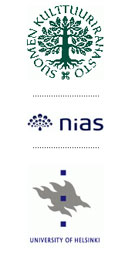 • 3rd Gendering Asia Network Conference in Helsinki
• 3rd Gendering Asia Network Conference in Helsinki
The 3rd Gendering Asia Network Conference will be held in Helsinki, Finland 28–30 May 2009. The theme for the 2009 Gendering Asia Network Conference is ”Gender, Mobility and Citizenship”. The conference seeks to address issues in contemporary Asia arising
from the increase in gendered mobility in border crossings in such
locations as national/transnational, public/private, and the
categories of ethnicity, class and sexuality. More specifically, some
of the manifestations of this mobility include the
trans-nationalization of care, nursing and household work, women’s
growing participation in the military, various movements conducted by
ethnic minorities and former colonial subjects, and the emergence of
trans-sexual bodies and identities. It is the third conference in a series after the successful
meetings in Sweden (2005) and in Iceland (2007).
In conjunction with the conference, a PhD workshop on gender and
Asia will be held. It is intended to bring together and assist
doctoral students at various stages of their dissertation project on a
topic related to gender and Asia. Doctoral students are asked to send a statement that discusses their
dissertation projects by February 28, 2009. Both the conference and the Ph.D. workshop are organized in
collaboration with the Gendering Asia Network and the Nordic Institute
of Asian Studies. Full information about the conference and the PhD workshop. ![]()
• 4th Nordic workshop on Peace and Development in Sri Lanka in Copenhagen
The 4th annual Nordic workshop on Peace and Development in Sri Lanka will
be held at the University of Copenhagen, 11–12 June 2009. Please note: Changed dates.
Last year Oslo hosted a large and very successful conference with many invited speakers, but this year the organisers return to the smaller workshop format aiming primarily at strengthening the Nordic/European Sri Lanka scholars’ community. A larger international conference will take place in Sri Lanka later in 2009. The programme will be organised in three thematic and one open session: Theme I: Empirical and theoretical explorations of conflict, peace and development;
Theme II: Political and ethical issues of conducting research;
Theme III: Conflict and peace in popular culture; and
Theme IV: Other issues and perspectives.
All presentations will be in plenary sessions.
Participants without a paper are expected to contribute as chairs/discussants. The number of participants is limited to approximately 30.
Deadline for registration, including abstract is 1 April 2009. More information.
• South Asian Migration and Diaspora in focus at second NSU workshop
![]() The second workshop in the series of Nordic Summer University (NSU) cluster workshops on ”South Asia in the 21st Century” will be held in Tyrifjord, Norway, 19–26 July 2009. The theme for the workshop will be ”South Asian Migration and Diaspora”. It is coordinated by the researchers Peter B. Andersen, University of Copenhagen; Knut A. Jacobsen, University of Bergen; Igor Kotin, Kunstkamera, St. Petersburg, Russia; and Marianne
Qvortrup Fibiger, University of Aarhus. Among the issues to be studied are: - The History of the South Asian diasporas; - Migration patterns: - The interaction between diasporas and ”home” communities; and - Identities in the diaspora. The official registration will be announced by the NSU in the beginning
of April 2009, but you may contact the organisers in advance and send a
preliminary title and abstract (200-250 characters) of your paper before 30 March 2009. (Include your title, affiliation, phone, mail, and full
address). Dr. Peter B. Andersen coordinates registrations in collaboration with Katrine Herold, Project Coordinator at the Nordic Institute of Asian Studies (NIAS) in Copenhagen. The registration should be sent to
both of them.
The second workshop in the series of Nordic Summer University (NSU) cluster workshops on ”South Asia in the 21st Century” will be held in Tyrifjord, Norway, 19–26 July 2009. The theme for the workshop will be ”South Asian Migration and Diaspora”. It is coordinated by the researchers Peter B. Andersen, University of Copenhagen; Knut A. Jacobsen, University of Bergen; Igor Kotin, Kunstkamera, St. Petersburg, Russia; and Marianne
Qvortrup Fibiger, University of Aarhus. Among the issues to be studied are: - The History of the South Asian diasporas; - Migration patterns: - The interaction between diasporas and ”home” communities; and - Identities in the diaspora. The official registration will be announced by the NSU in the beginning
of April 2009, but you may contact the organisers in advance and send a
preliminary title and abstract (200-250 characters) of your paper before 30 March 2009. (Include your title, affiliation, phone, mail, and full
address). Dr. Peter B. Andersen coordinates registrations in collaboration with Katrine Herold, Project Coordinator at the Nordic Institute of Asian Studies (NIAS) in Copenhagen. The registration should be sent to
both of them.
• Other conferences connected to South Asian
studies arranged all over the World
See SASNET’s page, http://www.sasnet.lu.se/conferences.html#conf
Important lectures and seminars in Scandinavia
• Bridget Drinka lectures on Indo-European Language structures
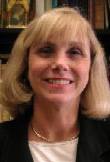 Professor Bridget Drinka from the Dept. of English, University of Texas, San Antonio, will hold a guest lecture on ”Cladistic and Acladistic Reconstruction.
Implications for Indo-European Languages” at Oslo University on Wednesday 11 March 2009, 12.15–14.00. The lecture is organised by the PROIEL (Pragmatic Resources in Old Indo-European Languages) research project, financed by the Norwegian Research Council under their YFF program (2008-2012). Prof. Drinka will present three related arguments: first, that the
family tree model as it stands is an inadequate depiction of the complex
Professor Bridget Drinka from the Dept. of English, University of Texas, San Antonio, will hold a guest lecture on ”Cladistic and Acladistic Reconstruction.
Implications for Indo-European Languages” at Oslo University on Wednesday 11 March 2009, 12.15–14.00. The lecture is organised by the PROIEL (Pragmatic Resources in Old Indo-European Languages) research project, financed by the Norwegian Research Council under their YFF program (2008-2012). Prof. Drinka will present three related arguments: first, that the
family tree model as it stands is an inadequate depiction of the complex
relationships of the Indo-European languages, and that a new model is
needed; secondly, that the stratification of archaic vs. innovative
structures allows us not only to recognize the Indo-European languages as
related, but also to acknowledge that some Indo-European languages, like
Indo-Iranian and Greek, must have remained in contact longer than others;
and, finally, that this late contact constitutes one more piece of
evidence that the ? Out of India? theory, whether referring to the
indigeneity of Indo-Aryan on the Indian subcontinent or the origination of
proto-Indo-European itself in that location, is untenable. Venue: Harriet Holters hus, seminar room 114, University of Oslo, Blindern. All are welcome.
• Harsh V. Pant lectures on India’s major power ambitions
The Norwegian Institute for Defence Studies (IFS) invites to a seminar with Dr. Harsh V. Pant, Defence Studies Department, King’s College, London, UK on ”India’s major power ambitions”, on Thursday 12 March 2008, 1030–1200. Dr Pant, who has written numerous publications on Asian security issues
and is the author of ”Contemporary Debates in Indian Foreign and Security Policy” (Palgrave
Macmillan, 2008), will discuss the challenges India faces in realising its major power ambitions. Venue: IFS, Skippergata 17C, Oslo. For participation and further information,
please contact IFS.
A few days earlier, on Tuesday 10 March, Dr. Pant alse lectured in Stockholm on ”Iran-Pakistan relations in the face of deteriorating security in Afghanistan”. The seminar was organised by the
Swedish Defence Research Agency (FOI). More information.
• Jan af Geijerstam lectures on Swedish Industrial memories in India
Dr. Jan af Geijerstam, Division of History of Science and Technology, Royal Institute of Technology (KTH), Stockholm, holds a public lecture on ”Swedish Industrial memories in India”, at the Museum of Far Eastern Antiquities (Östasiatiska museet) in Stockholm on Saturday 14 March 2009, 13–15, focusing on three Swedish metallurgists Nils Wilhelm Mitander, Julius Ramsay and Carl Gustaf Wittenström who in the 1860s established pioneering iron-making enterprises, based on the most modern European technology of the time. The lecture is part of a series of lectures about places along the Silk Road and historical contacts over the entire Eurasian continent, organised by the Museum of Far Eastern Antiquities in collabporation with the Muesum of Ethnography and the Museum of Mediterranean and Near Eastern Antiquities. Venue for the seminar: Östasiatiska museet, Skeppsholmen, Stockholm.
• Swedish lecture tour for Dr. Ashis Sengupta
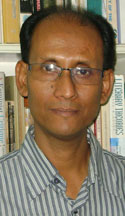 Dr. Ashis Sengupta, Professor of English at North Bengal University in Siliguri, India has been invited to hold open lectures at three Swedish universities during the period 20–26 March 2009. The visit has been financed by a SASNET guest lecture programme grant. The first seminar is held at Växjö University on Friday 20 March, 10–12. Prof. Sengupta will lecture about ”Gender and Sexuality in Contemporary Indian
Drama in English”. More information can be obtained from Dr. Maria Olausson at the Dept. of Comparative Literature, Växjö University. Venue: Room F 322.
Dr. Ashis Sengupta, Professor of English at North Bengal University in Siliguri, India has been invited to hold open lectures at three Swedish universities during the period 20–26 March 2009. The visit has been financed by a SASNET guest lecture programme grant. The first seminar is held at Växjö University on Friday 20 March, 10–12. Prof. Sengupta will lecture about ”Gender and Sexuality in Contemporary Indian
Drama in English”. More information can be obtained from Dr. Maria Olausson at the Dept. of Comparative Literature, Växjö University. Venue: Room F 322.
The second lecture will be held at Dalarna University, Campus Falun, on Tuesday 24 March, 15–17. It will be organised by the Higher Seminar in Language and Culture, and is also titled ”Gender and Sexuality: Reading India Through Contemporary Indian Drama in
English”. Venue: Room 277. More information can be obtained from Associate Professor Irene Gilsenan-Nordin.
The final destination for Prof. Sengupta will be Mälardalen University in Västerås, where he will give two guest lectures based on his research in Indian drama, both on Thursday 26 March. In the morning, from 10.15–11.45 he will lecture about ”Contemporary Indian Drama”.
In this talk he will present a view of Indian drama that is
inextricably connected with various performing art forms practiced in India almost as a
way of life down the ages. Venue: Milos hall.
In the second lecture at Mälardalen University, also on 26 March, 15.15–16.45, he will lecture about ”Gender and Sexuality in Contemporary Indian English Drama”, where he discusses four plays under the headlines “Body
Blows,” “Women and the Inquisition, ”Gender Trouble” and “Destabilizing Sexual Identity”. By using these concepts he wants to show how contemporary Indian drama, written in/translated into English, addresses the
issues of gender and sexuality from multiple perspectives. The lectures are organised by the School of Education, Culture and Communication. Venue: Room
T3-065 (Västerås).
All are welcome to the seminars. More information.
• T.V. Sekher lectures on India’s Population Policies and Programmes (1950-2008)
 Associate Professor T.V. Sekher from the International Institute for Population Sciences (IIPS), Mumbai, India will hold an open lecture on ”India’s Population Policies and Programmes (1950-2008): An Assessment” at Lund University on Tuesday 24 March 2009, 10.15–12.00. Dr. Sekher is a sociologist and demographer that has undertaken various field-based research studies during the last fifteen years on important social and demographic issues of relevance in contemporary India. He has collaborated with researchers from UK, France, Sweden, and USA, apart from scholars from India. Besides, he is the coordinator of the training program on ”Demography, Gender and Reproductive Health” that is organised every summer for Nordic students in Mumbai by IIPS and the Nordic Centre in India. In his presentation at Lund University he will describe the significant changes that the population policies have undergone during the last 60 years. In recent years, the emphasis is on community needs and quality of services at affordable costs. The population policy of the government of India (2000) stresses the need for decentralization of health and family welfare services, involvement of men in family planning programmes, greater role for the private and voluntary sectors, and the convergence of service delivery at village levels. Dr. Sekher has been invited to Sweden by Dr. Neelambar Hatti, Lund University, with the help of a SASNET guest lecture programme grant (more information). Venue: Java Hall, Dept. of Economic History, Scheelevägen 15 C, Lund.
Associate Professor T.V. Sekher from the International Institute for Population Sciences (IIPS), Mumbai, India will hold an open lecture on ”India’s Population Policies and Programmes (1950-2008): An Assessment” at Lund University on Tuesday 24 March 2009, 10.15–12.00. Dr. Sekher is a sociologist and demographer that has undertaken various field-based research studies during the last fifteen years on important social and demographic issues of relevance in contemporary India. He has collaborated with researchers from UK, France, Sweden, and USA, apart from scholars from India. Besides, he is the coordinator of the training program on ”Demography, Gender and Reproductive Health” that is organised every summer for Nordic students in Mumbai by IIPS and the Nordic Centre in India. In his presentation at Lund University he will describe the significant changes that the population policies have undergone during the last 60 years. In recent years, the emphasis is on community needs and quality of services at affordable costs. The population policy of the government of India (2000) stresses the need for decentralization of health and family welfare services, involvement of men in family planning programmes, greater role for the private and voluntary sectors, and the convergence of service delivery at village levels. Dr. Sekher has been invited to Sweden by Dr. Neelambar Hatti, Lund University, with the help of a SASNET guest lecture programme grant (more information). Venue: Java Hall, Dept. of Economic History, Scheelevägen 15 C, Lund.
Dr. Sekher will also hold an open lecture on the same issue at Stockholm University on Friday 27 March 2009, 13.15–15.00. Venue: Division of South and Central Asian Studies, Kräftriket 4 A, ground floor, room 136, Stockholm.
On Monday 30 March, 13–15 Dr. Sekher will then hold a lecture at Uppsala University. The theme for this lecture will be 'Female Deficit in India: Causes and Consequences'. It is hosted by the International Maternal and Child Health (IMCH), Department of Women’s
and Children’s Health, Uppsala University. Venue: IMCH, Drottninggatan 4, 4th floor, Uppsala. The lectures in Stockholm and Uppsala are co-sponsored by the Nordic Centre in India (NCI).
• Aalborg research seminar on ICT, Development and Female Leadership
A Research Symposium on ICT, Development and Female Leadership will be held in Aalborg, Denmark on Thursday 26 March 2009. The seminar, organised by the University of Aalborg, addresses the challenges of development in the Bangladesh area, which remains one of the poorest regions in the world. It focuses on two important tools for achieving such development, namely Information- and Communication Technology (ICT) and Female Leadership. These have recently been connected at the newly established and groundbreaking Asian University for Women, located in Chittagong, Bangladesh. The aim of the seminar is to establish a dialogue between researchers within the area of ICT, Development and Female Leadership, educational policy makers, development agencies, and ICT companies. The seminar has its focus on the role ICT can play as a tool for development.
Venue:
Utzon Centre, Slotspladsen 4, Aalborg. More information.
• Oslo seminar on Identity, Leadership and
Conflict in Afghanistan
A seminar on ”Identity, Leadership and
Conflict in Afghanistan” will be held in Oslo on Wednesday 1 April 2009, 14–16. The seminar is organised by the Centre for the Study of Civil War at the International Peace Research Institute (PRIO) in Oslo PRIO, and the Chr. Michelsen Institute (CMI) in Berge. It is the sixth in the CMI-PRIO Afghanistan Seminar Series. Panel discussion with presentations wil be given by by Prof. Ingeborg Baldauf, Humboldt University, Berlin, Germany; Prof. Thomas Barfield, Boston University, USA; and Prof. Fredrik Barth, University of Oslo. The discussant is Dr. Astri Suhrke, CMI, and the moderator is Dr. Kristian Berg Harpviken, PRIO. Please register with seminar@prio.no by 30 March, if you want to attend this seminar. More information.
• Bangladeshi Major General lectures about South Asian Security Architecture
The Norwegian Institute of International Affairs (NUPI) invites to a morning seminar (with Major General Muniruzzaman, former military adviser and Chief of Staff
to the President of Bangladesh, President of the Bangladesh Institute of
Peace and Security Studies (BIPSS) in Oslo on Thursday 2 April, 9.00–10.30. His presentation is titled ”South Asian Security Architecture: Security Challenges Facing South Asia”, and focuses on the topics of terrorism and counter-terrorism, the role
and rise of India and its place in South Asia, and the role of the
Military in South Asia. Participants must register in advance. Venue: NUPI, C.J. Hambros plass 2 D, Oslo. More information.
• Ignatius Jesudasan key speaker in seminar on ”Roots of Religious Violence
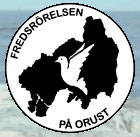 Dr. Ignatius Jesudasan from the Arul Kadal Jesuit Regional Theology Centre in Chennai, India, will participate as key speaker at a seminar on ”Roots of Religious Violence” to be held in Stocken on the Swedish west coast on Saturday 16 May 2009, 10–17. Other participants in the seminar, organised by Fredsrörelsen på Orust, will be former archbishop of the Church of Sweden, Dr. K G Hammar, now doing theological research at Lund University; and Dr. Jan Hjärpe, Professor Emeritus in Islamology, also based at Lund University. The seminar will focus on religious literalism and alternative understanding of holy scriptures. Dr. Jesudasan who is a senior Jesuit priest, Gandhian scholar and social activist, defended his PhD in 1980 with a thesis titled ”Gandhian Theology of Liberation” at Marquette University in Milwaukee, Wisconsin, USA. In 2007, he published a book titled ”Roots of Religious Violence: A Critique of Ethnic Metaphors” and his most recent work is ”Genesis Myth of Manifold Meanings” from 2008. Venue: Stockens Festlokal (former Svanvik’s elementary school), Ellös on the island of Orust, 90 km north of Gothenburg. More information.
Dr. Ignatius Jesudasan from the Arul Kadal Jesuit Regional Theology Centre in Chennai, India, will participate as key speaker at a seminar on ”Roots of Religious Violence” to be held in Stocken on the Swedish west coast on Saturday 16 May 2009, 10–17. Other participants in the seminar, organised by Fredsrörelsen på Orust, will be former archbishop of the Church of Sweden, Dr. K G Hammar, now doing theological research at Lund University; and Dr. Jan Hjärpe, Professor Emeritus in Islamology, also based at Lund University. The seminar will focus on religious literalism and alternative understanding of holy scriptures. Dr. Jesudasan who is a senior Jesuit priest, Gandhian scholar and social activist, defended his PhD in 1980 with a thesis titled ”Gandhian Theology of Liberation” at Marquette University in Milwaukee, Wisconsin, USA. In 2007, he published a book titled ”Roots of Religious Violence: A Critique of Ethnic Metaphors” and his most recent work is ”Genesis Myth of Manifold Meanings” from 2008. Venue: Stockens Festlokal (former Svanvik’s elementary school), Ellös on the island of Orust, 90 km north of Gothenburg. More information.
Business and Politics
• Half of Sweden’s development assistance through multilateral organisations On Monday 9 March 2009, the Swedish Minister for International Development Cooperation, Ms. Gunilla Carlsson presented the results of an extensive review of the multilateral development organisations that together receive almost half of Sweden's total development assistance. This accounts for some SEK 34 billion in 2009. The review covers 23 of the multilateral development organisations receiving Swedish development assistance. This is the first time that a review of this type has been undertaken in Sweden. Multilateral organisations play an important role in international cooperation in support of poverty reduction and development in poor countries. They are key to achieving the Millennium Development Goals and promoting human rights. In multilateral development cooperation, several countries or donors join together over common objectives and are thereby able to have a greater impact in their contribution to development. Sweden cooperates with, and supports, many multilateral organisations, principally various UN bodies, multilateral development banks such as the World Bank, and the EU. In several cases, Sweden is one of the largest financers of the multilateral organisations. The organisations include UNDP, UNICEF, WFP, UNIFEM, ILO, WHO, UN-HABITAT, FAO, and the Asian Development Bank. More information.
On Monday 9 March 2009, the Swedish Minister for International Development Cooperation, Ms. Gunilla Carlsson presented the results of an extensive review of the multilateral development organisations that together receive almost half of Sweden's total development assistance. This accounts for some SEK 34 billion in 2009. The review covers 23 of the multilateral development organisations receiving Swedish development assistance. This is the first time that a review of this type has been undertaken in Sweden. Multilateral organisations play an important role in international cooperation in support of poverty reduction and development in poor countries. They are key to achieving the Millennium Development Goals and promoting human rights. In multilateral development cooperation, several countries or donors join together over common objectives and are thereby able to have a greater impact in their contribution to development. Sweden cooperates with, and supports, many multilateral organisations, principally various UN bodies, multilateral development banks such as the World Bank, and the EU. In several cases, Sweden is one of the largest financers of the multilateral organisations. The organisations include UNDP, UNICEF, WFP, UNIFEM, ILO, WHO, UN-HABITAT, FAO, and the Asian Development Bank. More information.
• Information about South Asia related business and politics in Sweden
See SASNET's page, http://www.sasnet.lu.se/polbuss.html
South Asia related culture in Scandinavia
•
Eight Oscars for ”Slumdog Millionaire”
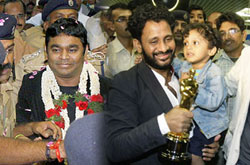 8 Oscars were awarded to the British India-theme film ”Slumdog Millionaire” at the 81st Academy Award ceremony in Hollywood on 23 February 2009. Set and filmed in India, Slumdog Millionaire tells the story of a young man from the Dharavi slums of Mumbai who appears on the Indian version of Who Wants to Be a Millionaire? (Kaun Banega Crorepati) and exceeds people's expectations, arousing the suspicions of the game show host and of law enforcement officials. It was nominated for 10 Academy Awards and won eight, including awards for Best Film and Best Director (Danny Boyle), but also for Best original song – Jai Ho, composed by the Indian music maestro AR Rahman. In India, the film has become the subject of controversy concerning its portrayal of India, Hinduism, alleged persecution of minorities and the welfare of its child actors. The film was made with a modest budget of USD 13 million. More information.
8 Oscars were awarded to the British India-theme film ”Slumdog Millionaire” at the 81st Academy Award ceremony in Hollywood on 23 February 2009. Set and filmed in India, Slumdog Millionaire tells the story of a young man from the Dharavi slums of Mumbai who appears on the Indian version of Who Wants to Be a Millionaire? (Kaun Banega Crorepati) and exceeds people's expectations, arousing the suspicions of the game show host and of law enforcement officials. It was nominated for 10 Academy Awards and won eight, including awards for Best Film and Best Director (Danny Boyle), but also for Best original song – Jai Ho, composed by the Indian music maestro AR Rahman. In India, the film has become the subject of controversy concerning its portrayal of India, Hinduism, alleged persecution of minorities and the welfare of its child actors. The film was made with a modest budget of USD 13 million. More information.
• Uttar Pradesh village in focus for Oscars winning documentary
Another India-theme film received an 2009 Oscars award, namely the documentary film ”Smile Pinki” made by American filmmaker Megan Mylan. It is a documentary about a girl named Pinki living with a severe cleft lip in one of the poorest areas of India, in the dusty Rampur Dabai village in Mirzapur district, Uttar Pradesh state. The 39-minute film traces Pinki's journey from being ostracised to being treated like a normal girl after a social worker from the Smile Train organization helped her undergo surgery. More information.
• More information about South Asia related culture
in Sweden and Scandinavia
See SASNET’s page, http://www.sasnet.lu.se/culture.html
New and updated items on SASNET web site
• Swedish departments where research on
South Asia is going on:
Constantly added to the list of research environments at Swedish
universities, presented by SASNET. The full list now includes 240 departments,
with detailed descriptions of the South Asia related research and education
taking place! Go to http://www.sasnet.lu.se/environment.html
ƒ Division of Medical Inflammation Research (MIR), Dept. of Medical Biochemistry and Biophysics (MBB), Karolinska Institutet Medical University, Stockholm
ƒ Division of Applied Material Physics, Department of Materials Science and Engineering, Royal Institute of Technology (KTH), Stockholm
ƒ Division of Manufacturing and Design of Wood and Bionanocomposites, Luleå University of Technology, Campus Skellefteå
ƒ Department of Physical, Inorganic and Structural Chemistry, Stockholm University
• Useful travelling information
Look at http://www.sasnet.lu.se/travelling.html.
Updated travel advises from the The British Foreign & Commonwealth
Office about safety aspects on travelling to the countries of
South Asia.
Best regards,
Lars Eklund
deputy director/webmaster
SASNET/Swedish South Asian Studies Network
SASNET is a national network for research, education, and information about South Asia based at Lund University. Its aim is to promote a dynamic networking process in which Swedish researchers co-operate with researchers in South Asia and globally.
The SASNET network is open to all the sciences. Priority is given to interdisciplinary cooperation across faculties, and more particularly to institutions in the Nordic countries and South Asia. SASNET believes that South Asian studies will be most fruitfully pursued as a cooperative endeavour between researchers in different institutions who have a solid base in their mother disciplines.
The network is financed by Sida (Swedish
International Development Cooperation Agency) and by Lund University.
Postal address: SASNET – Swedish South Asian Studies Network,
Scheelevägen 15 D, SE-223 70 Lund, Sweden
Visiting address: Ideon Research Park, House Alpha 1 (first floor,
room no. 2040), in the premises of the Centre for East and South
East Asian Studies at Lund University (ACE).
Phone: + 46 46 222 73 40
Fax: + 46 46 222 30 41
E-mail: sasnet@sasnet.lu.se
Web site:
http://www.sasnet.lu.se
SASNET - Swedish South Asian Studies Network/Lund
University
Address: Scheelevägen 15 D, SE-223 70 Lund, Sweden
Phone: +46 46 222 73 40
Webmaster: Lars Eklund
Last updated
2010-04-30
